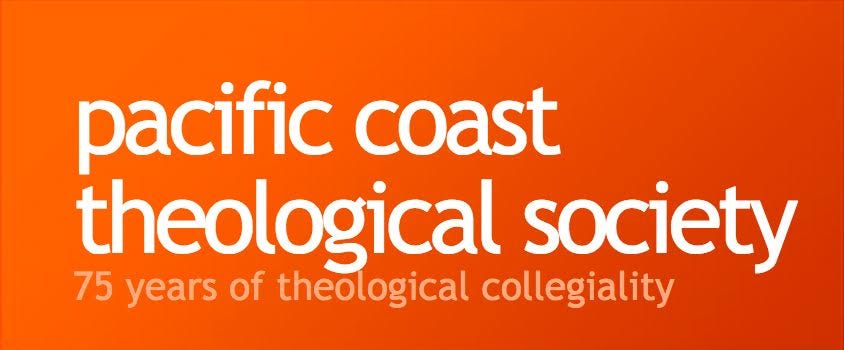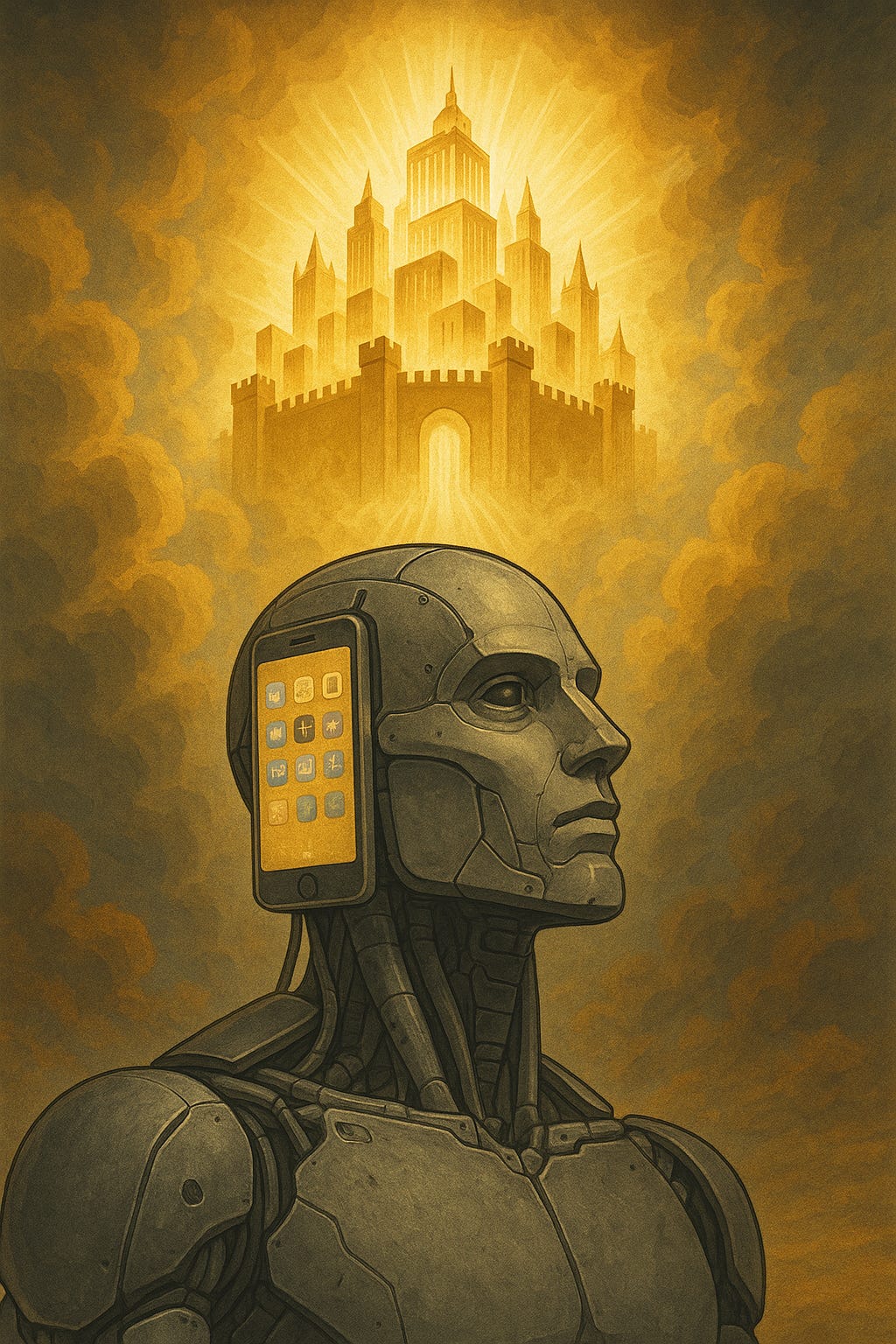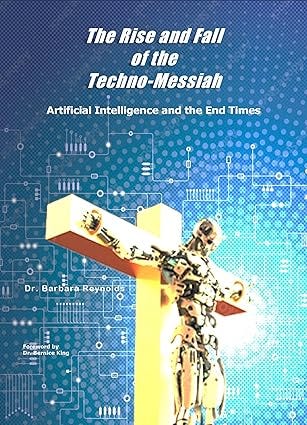Technological Salvation? Really? Part 2:
Peeking inside Adam Becker’s forecast of AI, Transhumanism, and Mars colonization
Today, Friday, October 10, 2025, is a day we tackle the promising yet forboding future of Artificial Intelligence. The Pacific Coast Theological Society will meet at Grace Cathedral in San Francisco at the invitation of Cathedral Dean, Malcolm Young. Noreen Herzfeld will deliver the keynote address. Mark Graves and Brian Patrick Green will deliver papers. Tracy Trothen and Erin Brigham will respond. If you’d like to download the two papers, just click on (pdf) on the Meeting Description page.
Now to the temptation to idolatrize technological progress.
In part one of this three-part examination of our expectations for technological salvation, we looked briefly at the hopes and cautions of theologians such as Teilhard de Chardin and Harry Emerson Fosdick as well as the glitter and glitz of Artificial Intelligence and Transhumanism. The idea of a technological eschatology is so very attractive that the temptation to idolatry is magnetic.
Here in part two, we will look at critics who might rescue us from idolatry. Specifically, we want to grasp the critiques of physicist Adam Becker, neo-orthodox theologian Langdon Gilkey, Pastor Barbara Reynolds, and Pope Leo XIV.
Adam Becker’s Critique of the Ideology of Technological Salvation
In his new book, More Everything Forever: AI Overlords, Space Empires, and Silicon Valley's Crusade to Control the Fate of Humanity, physicist and science writer Adam Becker fears that techie billionaires and their transhumanist friends are betting on a horse that will not finish the race. Why? Because the transhumanist horse is lame and no one has noticed it.
Becker reports that the utopia of Silicon Valley’s illuminati is “the dream of technology as salvation from all threats” (Becker 2025, 175). So Becker names this dream, The Ideology of Technological Salvation.
The ideology of technological salvation “promises a glorious future: technological progress, unchecked. Align the AI, avert the apocalypse, and technology will handle the rest. Humanity will expand across the cosmos, exploiting ever-increasing stores of natural resources. All limits to economic growth and energy usage will melt away. The AI will extend our lifespans by a trillion-fold, merging with us or uploading our minds into its silicon paradise. The messy details of sectarian conflict, political struggles, identity politics, and inequality of all kinds will be rendered irrelevant. Working to hasten this utopia by optimizing the shit out of things is the greatest possible good” (Becker 2025, 29).
However, faith in technology is misplaced, according to Becker. Even though it is technology that threatened world peace with nuclear weaponry, it will take concerted political cooperation to prevent World War III. Even though it is modern civilization which threatens our world with global warming and the environmental crisis, no technological fix is possible without a global moral commitment. Intelligence, whether human or artificial, cannot cure moral disease.
“There are myriad human problems that could spiral out into war or ecological disaster or some other unpredictable threat, none of which have technological fixes” (Becker 2025, 175). “The idea that an aligned AGI (if that idea makes sense at all) would eliminate all existential threats just doesn’t seem to have any basis in reality” (Becker 2025, 176).
What are our techie billionaires and their transhumanist disciples missing? It is the moral component.
Becker is no theologian. He articulates no anthropology, no doctrine of sin, no hope for divine grace. Yet, Becker can see what those with open eyes can see, namely, the human race is crippled by its own propensity for self-disablement.
“Most of the greatest problems facing humanity right now—global warming, massive inequality, the lurking potential for nuclear war—are not driven by resource scarcity or a lack of technology. They’re social problems, requiring social solutions….These are political problems, problems of persuasion and justice and fairness” (Becker 2025, 285).
Neo-Orthodox theology challenges the doctrine of progress
The neo-orthodox Protestant theologians of the 20th century who lived through two world wars could see the futility of trust in scientific or technological progress. Science and technology are always ambiguous, always susceptible to the good purposes and evil purposes assigned them by their human creators and managers. Here is Langdon Gilkey at the University of Chicago.
"What threatens our entire race is neither technology and industrialism by themselves nor the ultimate insufficiencies of nature. What threatens us all as a terrifying fate is the consequences of human concupiscence, exacerbated by the genius, the superficialities and the lures of a technological and commercial culture into a demonic and hardly controllable force that has partly despoiled and now promises to devour the earth" (Gilkey 1976, 263).
Faith in technological progress risks idolatry and self-destruction
Why did Chicago’s Robert Francis Prevost select the name, Leo XIV, to don his papacy? Did AI have something to do with it? Yes, indeed.
“…I chose to take the name Leo XIV. There are different reasons for this, but mainly because Pope Leo XIII in his historic Encyclical Rerum Novarum addressed the social question in the context of the first great industrial revolution. In our own day, the Church offers to everyone the treasury of her social teaching in response to another industrial revolution and to developments in the field of artificial intelligence that pose new challenges for the defense of human dignity, justice and labor.”
Leo XIV shares this concern with AI and the future of humanity with his predecessor, Pope Francis. Of course, declared Francis, “the Church encourages the advancement of science, technology, the arts, and other forms of human endeavor, viewing them as part of the ‘collaboration of man and woman with God in perfecting the visible creation’” (Francis 2025, §2).
But at the same time, Francis also warned us against the ideology of technological salvation, what he called the ‘technocratic paradigm’. “The presumption of substituting God for an artifact of human making is idolatry, a practice Scripture explicitly warns against (e.g., Ex. 20:4; 32:1-5; 34:17)” (Francis 2025, §54).
Will the Techno-Messiah save us?
In a parallel fashion, African American Pentecostal pastor and millennialist Barbara Reynolds fears AI technology could become a false god or idol, what she calls a “techno-messiah” (Reynolds 2023). Similarly, Nathan Mladin at the Theos Think Tank in the UK contrasts technological idolatry with the biblical promise of salvation.
“Transhumanism looks to technology as a form of secular saviour that would remove the vulnerabilities and vicissitudes of embodied life altogether….The transhuman body is a human project to be completed, whereas Christians looks forward to receiving, as a gift, an imperishable, resurrected, spiritual body, the preview of which is the resurrected Jesus, who heralds the fate that awaits the entire cosmos” (Mladin 2024, 59-60).
In sum, theologians worldwide are watching the creeping divinization of AI as it increasingly takes on the veneer of something superhuman.
Conclusion
Our human nature, John Calvin reminds us, “is a perpetual factory of idols” (Calvin 1960, I.1.11). When as a culture we put our faith in technological progress to protect humanity from all threats and dangers, it’s easy to see how we might give birth to a finite idol. Is that happening right now? Certainly some theologians and non-theologians are blowing the whistle and waving the red flag.
Our ethical task – according to techies such as Stanford’s Fei Fei Li (Li 2023) as well as theologians such as Barbara Reynolds mentioned above – is to keep AI aligned with human values. That is, to keep AI aligned with those values that lead to human flourishing. “We must code ethical concerns into the digital culture to develop a more inclusive paradigm and to correct the moral deficit created by demands of profits and speed,” writes the latter (Reynolds 2023, 239).
We have been warned against embracing an ideology of technological salvation. This seems to me like sound advice.
Substack H+ 2017. The Ideology of Technological Salvation, Part 2: Peeking inside Adam Becker’s forecast of AI, Transhumanism, and Mars colonization
Substack H+ 2016. Technological Salvation? Really? Part 1: Can AI and Transhumanism really deliver?Patheos H+ 2007: Hopes and Hazards of AI
Substack H+ 2008: The Two Scares of Superintelligence
Patheos H+ 2009: AI and Sin
Substack H+ 1027 H+ 2012: TESCREAL, Transhumanism, and Cybertheology
Patheos H+ 2013: Is AI in the Image of God?
Substack H+ 2014: AI robots in the church pew? Prayer mat? Pulpit? Really? The future of AI in Cyber Religion
Patheos ST 2020: ChatGPT Theology’s Image of God
“Machine Intelligence, Artificial General Intelligence, Super-Intelligence, and Human Dignity” Religions
“Cybertheology and the Ethical Dimensions of Superintelligence: A Theological Inquiry into Existential Risks,” Khazanah Theologia
“Christian Transhumanism and Transhumanist Christianity,” Scientia et Fides
▓
Ted Peters (Ph.D., University of Chicago) is a public theologian directing traffic at the intersection of science, religion, and ethics. Peters is an emeritus professor at the Graduate Theological Union, where he co-edits the journal, Theology and Science, on behalf of the Center for Theology and the Natural Sciences, in Berkeley, California, USA. He recently co-edited Astrobiology: Science, Ethics, and Public Policy (Scrivener 2021) as well as Astrotheology: Science and Theology Meet Extraterrestrial Intelligence (Cascade 2018). He edited The Promise and Perils of AI and IA: New Technology Meets Religion, Theology, and Ethics (ATF 2025). He also co-edited Religious Transhumanism and Its Critics (Roman and Littlefield 2022) and The CRISPR Revolution in Science, Ethics, and Religion (Bloomsbury 2025). See his Patheos blogsite and his website [TedsTimelyTake.com].
▓
References
Becker, Adam. 2025. More. Everything. Better. New York: Basic Books.
Bostrom, Nick. 2024. Deep Utopia: Life and Meaning in a Solved World. Washington DC: Idea Press.
Calvin, John. 1960. Institutes of the Christian Religion, 2 Volumes. Louisville KY: Westminster John Knox.
Center, for AI Safety. 2023. "Statement on AI Risk." https://www.safe.ai/statement-on-ai-risk.
Christian, Leaders. 5/21/2025. "Christianity in an Age of AI: An Appeal for Wise Leadership." https://christianailetter.org/?utm_source=newsletter.futureoflife.org&utm_medium=newsletter&utm_campaign=future-of-life-institute-newsletter-one-big-beautiful-bill-banning-state-ai-laws&_bhlid=8f1aba36f99a0d850ea3b4030eed07fbc49334e6&wsf_hash=%5B%7B%22id%, Open Letter to US President Donald J Trump.
De Chardin, Pierre Teilhard. 1964. The Future of Man. New York: Harper.
Delio, Ilia. 2024. "Transhumanism and Transcendence." In The Cambridge Companion to Religion and Artificial Intelligence, by eds Beth Singler and Fraser Watts, 131-147. Cambridge UK: Cambridge University Press.
Fosdick, Harry Emmerson, 1922. Christianity and Progress. New York: Herder and Herder.
Francis, Pope. 2025. Antiqua et Nova. https://www.vatican.va/roman_curia/congregations/cfaith/documents/rc_ddf_doc_20250128_antiqua-et-nova_en.html, Vatican: Dicastery for the Doctrine of the Faith & Dicastery for Culture and Education.
Gilkey, Langdon. 1976. Reaping the Whirlwind: A Christian Interpretation of History. New York: Seabury Crossroad.
Henshall, Will. 2024. "Do We Face an Existential Threat?" In Special Edition on Artificial Intelligence: A New Age, by Time, 24-25. New York: Time.
Kurzweil, Ray. 2024. The Singularity is Nearer. New York: Viking.
Li, Fei-Fei. 2023. The Worlds I See. New York: Flatiron Books.
Mladin, Nathan. 2024. AI and the Afterlife. London: Theos; https://www.theosthinktank.co.uk/cmsfiles/AI-and-Afterlife-report-Update.pdf.
Peters, Ted. 2025. The Promise and Peril of AI and IA. Adelaide: ATF.
Reynolds, Barbara. 2023. The Rise and Fall of the Techno-Messiah: Artificial Intelligence and the End Times. Lanham MD: Seymour Press.
Vita-More, Natasha. 2019. "History of Transhumanism." In The Transhumanism Handbook, by Newton Lee, 49-62. Switzerland: Springer.







